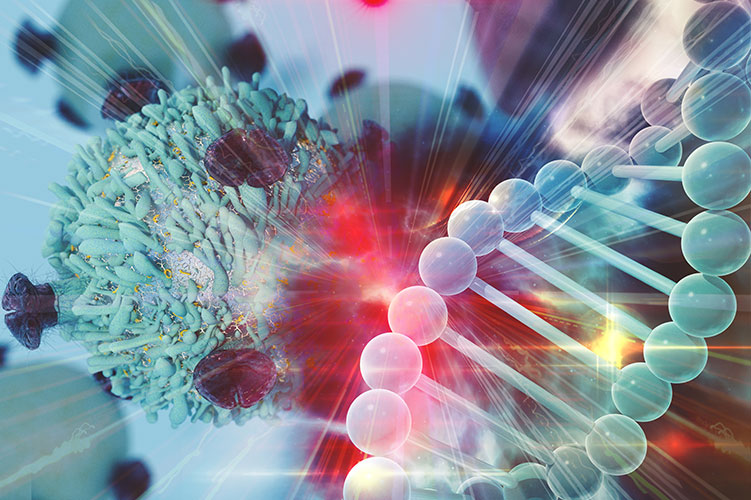
What Is Targeted Cancer Therapy?
Researchers have learned about some of the differences in cancer cells (or other cells near them) that help them grow and thrive. This has led to the development of drugs that “target” these differences. Treatment with these drugs is called targeted therapy.
Targeted therapy drugs, like other drugs used to treat cancer, technically are considered chemotherapy. But targeted therapy drugs don’t work the same way as standard chemotherapy (chemo) drugs. For example, many targeted drugs go after the cancer cells’ inner workings – the programming that makes them different from normal, healthy cells, while leaving most healthy cells alone. These drugs tend to have side effects different from standard chemo drugs.
Targeted therapy is a special type of chemotherapy that takes advantage of differences between normal cells and cancer cells. It’s sometimes used alone, but most often other cancer treatments are used with targeted therapy.
Targeted drugs can be used as the main treatment for some cancers, but in most cases they’re used with other treatments such as chemo, surgery, and/or radiation therapy.
How does targeted cancer therapy work?
Most standard chemo drugs work by killing cells in the body that grow and divide quickly.
Cancer cells divide quickly, which is why these drugs often work against them. But chemo drugs can also affect other cells in the body that divide quickly, which can sometimes lead to serious side effects.
Targeted therapy drugs don’t work like chemo drugs. These drugs target certain parts of cancer cells that make them different from other cells. (Or they may target other cells that help cancer cells grow.)
Cancer cells typically have many changes in their genes (DNA) that make them different from normal cells. For instance, these gene changes might allow the cell to stop working the way it should and/or grow and divide very quickly. These types of changes are what make it a cancer cell.
But there are many different types of cancer, and not all cancer cells are the same. For example, colon cancer and breast cancer cells often have different gene changes that help them grow and/or spread. Even among people with colon cancer, the cancer cells can have different gene changes.
Targeted drugs zero in on some of the changes that make cancer cells different. They target specific areas of the cancer cell that allow the cell to grow faster and abnormally. There are many different targets on cancer cells and many drugs that have been developed to attack them.
Targeted drugs can work to:
- Block or turn off chemical signals that tell the cancer cell to grow and divide
- Change proteins within the cancer cells so the cells die
- Stop making new blood vessels to feed the cancer cells
- Trigger your immune system to kill the cancer cells
- Carry toxins to the cancer cells to kill them, but not normal cells
Some targeted drugs are more “targeted” than others. Some might target only a single change in cancer cells, while others can affect several different changes. Others boost the way your body fights the cancer cells. This can affect where these drugs work and what side effects they cause.
